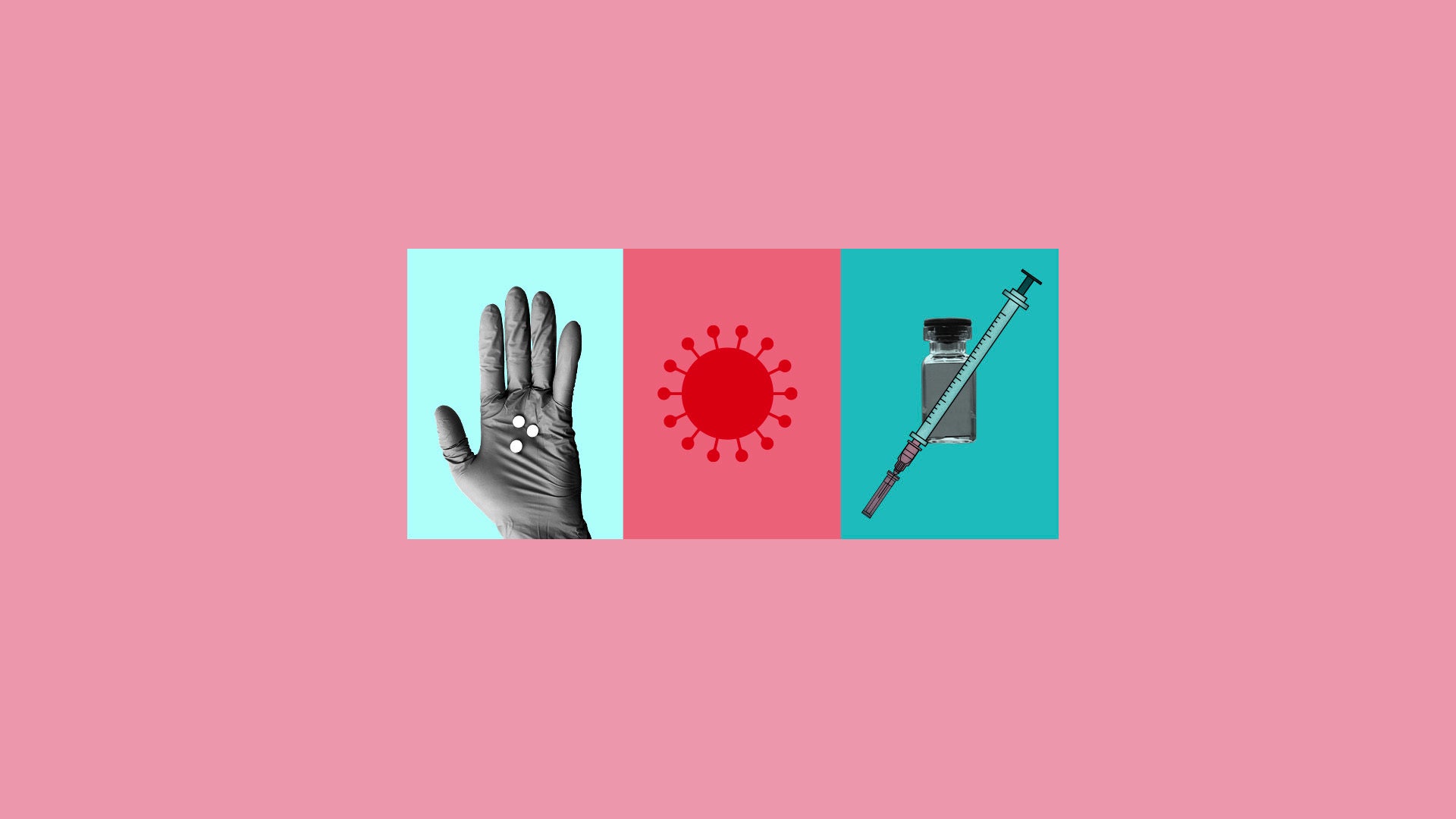Can I take painkillers before or after a COVID-19 vaccine?
Health experts advise against taking painkillers before getting a COVID-19 vaccine, but say they're OK to use afterward if symptom relief is needed and your doctor agrees

Your support helps us to tell the story
From reproductive rights to climate change to Big Tech, The Independent is on the ground when the story is developing. Whether it's investigating the financials of Elon Musk's pro-Trump PAC or producing our latest documentary, 'The A Word', which shines a light on the American women fighting for reproductive rights, we know how important it is to parse out the facts from the messaging.
At such a critical moment in US history, we need reporters on the ground. Your donation allows us to keep sending journalists to speak to both sides of the story.
The Independent is trusted by Americans across the entire political spectrum. And unlike many other quality news outlets, we choose not to lock Americans out of our reporting and analysis with paywalls. We believe quality journalism should be available to everyone, paid for by those who can afford it.
Your support makes all the difference.Can I take painkillers before or after a COVID-19 vaccine?
Don’t take them before a shot to try to prevent symptoms, but if your doctor agrees, it’s OK to use them afterward if needed.
The concern about painkillers is that they might curb the very immune system response that a vaccine aims to spur. Vaccines work by tricking the body into thinking it has a virus and mounting a defense against it. That may cause temporary arm soreness, fever, muscle aches or other symptoms of inflammation — signs the vaccine is doing its job.
Some research suggests that certain painkillers including ibuprofen (Advil, Motrin and other brands) might diminish the immune system's response. A study on mice suggests these drugs might lower production of antibodies, which block the virus from infecting cells.
Other research has found that painkillers might dampen the response to some childhood vaccines, so many pediatricians recommend that parents avoid giving children the medicines before a shot and only if needed afterward, said Dr. William Schaffner, an infectious disease expert at Vanderbilt University
The U.S. Centers for Disease Control and Prevention recently updated its guidance to recommend against painkillers before a COVID-19 shot. It says they can be taken afterward for symptoms if you have no other medical conditions precluding their use, but to talk to your doctor.
If you’re already taking one of those medications for a health condition, you should not stop before you get the vaccine — at least not without asking your doctor, said Jonathan Watanabe, a pharmacist at the University of California, Irvine.
If you’re looking to relieve symptoms after your shot, he added, acetaminophen (Tylenol) is better because it works in a different way than some other painkillers.
“If you have a reaction afterwards and need something, take some acetaminophen,” Schaffner agreed. He added that the immune response generated by the vaccines is strong enough that any dampening effect by painkillers is likely slight and won’t undermine the shots.
The CDC offers other tips, such as holding a cool, wet washcloth over the area of the shot and exercising that arm. For fever, drink lots of fluids and dress lightly. Call your doctor if redness or tenderness in the arm increases after a day or if side effects don’t go away after a few days, the CDC says.
___
The AP is answering your questions about the coronavirus in this series. Submit them at: FactCheck@AP.org. Read more here:
What should I know about COVID-19 vaccines if I’m pregnant?
How do we know the COVID-19 vaccines are safe?
How long could I be contagious before a positive virus test?
Subscribe to Independent Premium to bookmark this article
Want to bookmark your favourite articles and stories to read or reference later? Start your Independent Premium subscription today.